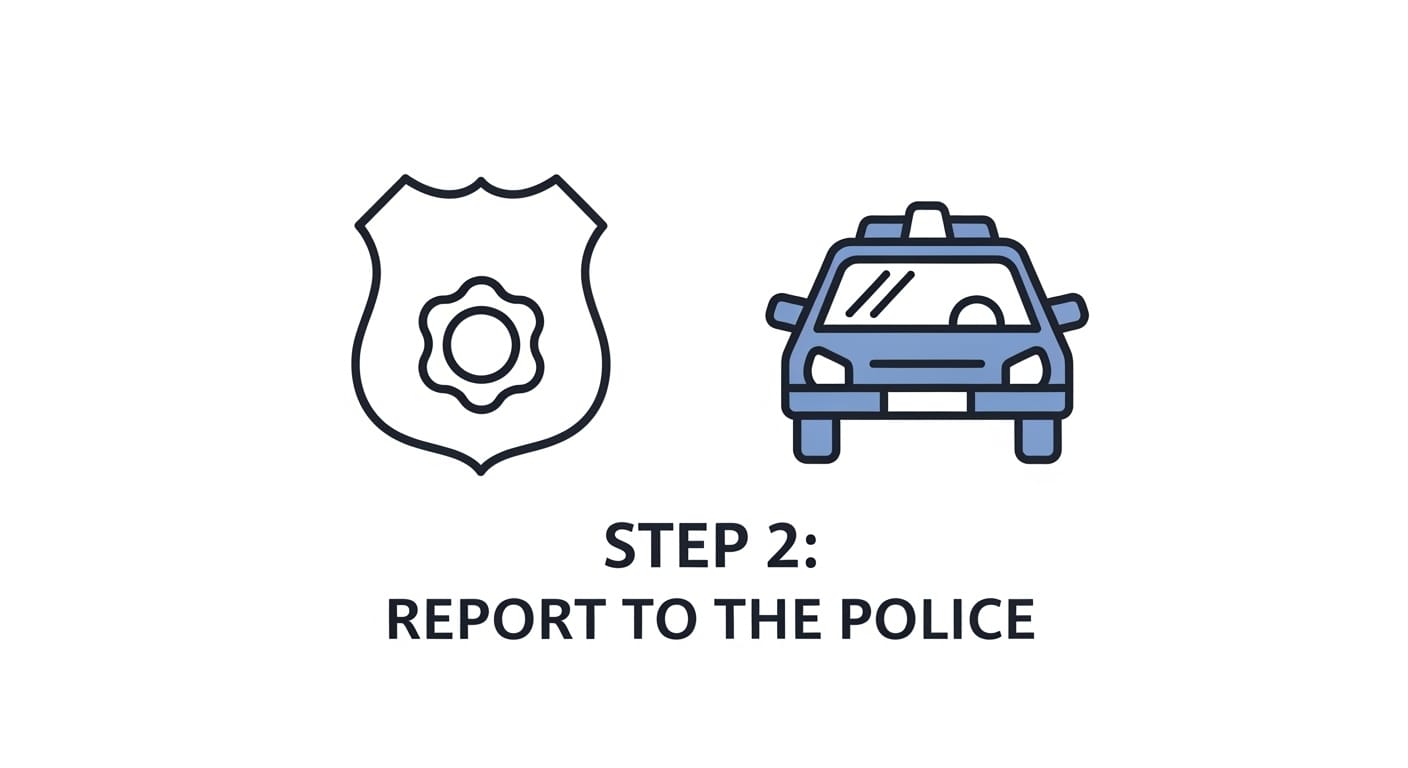Please Note: This post may contain affiliate links. If you click one of them, we may receive a commission at no extra cost to you. As an Amazon Associate, I earn from qualifying purchases.
You’ve just had that gut-wrenching realization: you’ve been scammed. Maybe it was a phishing email that tricked you into handing over your credit card information, or perhaps it was a well-dressed con artist who convinced you to invest in the next big thing (spoiler alert: it was not).
Whatever the case, you’re staring at your bank statement or credit card bill, and you’re thinking, “How did I let this happen?” Don’t worry—you’re not alone, and there are steps you can take to try and make things right.
If you’ve fallen victim to financial fraud, it’s easy to feel overwhelmed. After all, this is your hard-earned money we’re talking about! But, the good news is: there are concrete steps you can take to protect yourself, recover some losses, and maybe even make the fraudster wish they hadn’t crossed paths with you. Let’s dive into what you can do.

Top Takeaways and Key Concepts
Stay Calm and Collect Evidence: Document emails, texts, receipts, screenshots, and all scam-related communications.
Report to Your Bank or Credit Card Company: Immediately notify financial institutions to block fraudulent transactions and issue new cards.
Contact Authorities: File police and FTC reports to create official documentation and aid investigations.
Freeze and Monitor Your Credit: Contact Equifax, TransUnion, and Experian to prevent new accounts and watch for suspicious activity.
Stay Vigilant and Consider Legal Action: Continuously monitor accounts, protect sensitive information, and consult an attorney if losses are significant.
Summary of This Article
The article outlines essential steps to take after falling victim to financial fraud. Key actions include staying calm, documenting all evidence, and immediately reporting the scam to banks or credit card companies. It emphasizes contacting authorities such as local police and the FTC to create official records. Freezing credit with the three major bureaus and monitoring reports are crucial to prevent further identity theft. Finally, it highlights staying vigilant, securing sensitive information, and considering legal action if substantial financial loss occurs, ensuring better protection and potential recovery.
Stay Calm and Gather Your Evidence

Okay, first things first. As tempting as it is to scream at your computer screen or throw your phone across the room, take a deep breath. I know, this is a lot to digest, but the last thing you want to do is act rashly. Take a moment to gather your wits and, more importantly, your evidence.
Document everything related to the scam. This includes emails, text messages, phone numbers, screenshots, and any other communication you received. Scammers love to hide behind fake names and phone numbers, but with your documentation, you can start to build a case.
By the way, if you were asked to wire money or send gift cards, keep the receipts! You’d be surprised how often something as simple as a receipt becomes a crucial piece of evidence in legal cases.
Report the Scam to Your Bank or Credit Card Company

Once you’ve had your mini panic attack (don’t worry, it happens to the best of us), the next step is to report the fraud to your bank or credit card company. And don’t put it off! The sooner you report the incident, the better your chances are of preventing further charges or stopping fraudulent transactions.
Let’s say you just noticed some weird charges on your credit card statement. Call the bank’s fraud department immediately. They have the tools to block further transactions and may even issue you a new card. Remember: time is money here, so don’t wait to take action. If you don’t report it fast enough, you could be stuck with the bill for charges you never made.
Contact the Authorities
It might seem like a hassle, but if the financial fraud you’re facing is more than just a few stolen bucks, it’s time to involve the authorities. This includes filing a report with your local police department.
Now, before you roll your eyes, think about it: a police report can serve as official documentation of the fraud and can be invaluable when disputing charges or taking further legal action. Plus, some scammers operate in big networks, and reporting the fraud can help authorities catch them before they strike again.
The FTC (Federal Trade Commission) is also a valuable ally in the battle against fraud. You can report the scam to them online, and they may even use your case to spot patterns or connect it to other fraudulent activities. Interestingly enough, the more people who report the same scam, the more likely it is that authorities will take action.
Consider Freezing Your Credit
Here’s something that not everyone knows: If your identity has been stolen, freezing your credit is a powerful tool. Think of it as locking your credit file in a vault. By doing this, you make it nearly impossible for fraudsters to open new credit accounts in your name. Freezing your credit is free, and it can save you from all kinds of headaches down the road.
You’ll need to contact the three major credit bureaus—Equifax, TransUnion, and Experian—to place a credit freeze. And while it might sound like something from a spy movie, it’s as simple as picking up the phone or filling out a few forms online. Also, be prepared for the fact that you’ll need to unfreeze your credit if you ever want to apply for new credit or loans.
Alert the Credit Bureaus and Monitor Your Credit Report
You’ve frozen your credit—now what? Well, you should also alert the credit bureaus and ask for a credit report. Why? Because scammers can open accounts in your name, rack up debt, and leave you with a ruined credit score without you ever knowing it.
You have the right to request a free annual credit report from each of the three major bureaus. Check for any unfamiliar accounts or charges. If you spot something suspicious, immediately dispute it.
By the way, don’t just stop there. Consider signing up for a credit monitoring service, which will keep an eye on your accounts for any future fraud. These services aren’t always free, but they can give you some peace of mind as you monitor your credit and repair any damage caused by the scam.
Stay Vigilant and Protect Yourself Going Forward
Once you’ve taken these steps, don’t relax just yet. Fraudsters are persistent, and they often target the same victims more than once. In fact, some might try to sneak past your defenses after they’ve stolen your personal information. That’s why it’s critical to stay vigilant.
Keep an eye on your credit reports, bank statements, and credit card bills. And always be cautious about sharing sensitive information online or over the phone.
Now, let’s get into some practical ways to protect yourself: Use strong passwords for all your online accounts, change your passwords regularly, and avoid clicking on shady links in emails. And when in doubt, double-check with your bank or credit card company before making any major decisions, especially if someone contacts you unexpectedly. As a matter of fact, in most cases, if it’s too good to be true, it probably is.
Consider Legal Action
If you’ve experienced significant financial loss due to fraud, you might want to consider legal action. This could involve filing a lawsuit against the scammer (if they’re known) or even pursuing compensation from your bank or credit card company if they failed to protect you.
In some cases, you may be able to recover some or all of the funds that were stolen from you. Just keep in mind that pursuing legal action can be lengthy and costly. It’s a good idea to consult with an attorney who specializes in financial fraud or consumer protection law before deciding whether it’s worth your time.
Resources
How to Report Fraud to the FTC
https://www.consumer.ftc.gov/articles/0300-how-avoid-scam
Identity Theft Resource Center
https://www.idtheftcenter.org/
Protecting Your Credit
https://www.consumerfinance.gov/consumer-tools/credit-reports-and-scores/
Frequently Asked Questions
What should I do first after discovering financial fraud?
Stay calm and gather all evidence such as receipts, emails, and screenshots. This documentation will help authorities and financial institutions investigate and verify your claim.
How soon should I report fraud to my bank or credit card company?
Report the fraud immediately. Quick action helps block unauthorized transactions, prevents further losses, and may increase your chances of recovering stolen funds.
Should I contact the police after financial fraud?
Yes, filing a police report creates an official record of the crime. This report can be used for insurance claims, legal actions, or when disputing fraudulent charges.
Why is freezing my credit important after being scammed?
Freezing your credit prevents new accounts from being opened in your name, reducing the risk of further identity theft or financial fraud.
How can I monitor my credit after a fraud incident?
Request free annual credit reports from the major bureaus and review them for unfamiliar accounts or charges. You can also use credit monitoring services for ongoing protection.
What long-term steps can help prevent future fraud?
Stay vigilant by checking financial statements regularly, using strong passwords, and being cautious about sharing personal or financial information online or by phone.
Can I take legal action after financial fraud?
Yes, if the loss is significant, consult an attorney who specializes in financial fraud to explore recovery options and determine whether legal action is appropriate.

Kevin Collier is a legal expert passionate about simplifying complex legal concepts for everyday individuals. With a focus on providing clear, practical information, he covers a wide range of topics, including rights, responsibilities, and legal procedures. Kevin aims to empower readers with the knowledge they need to navigate the legal landscape confidently, ensuring they can make informed decisions regarding their legal matters. Through insightful articles and easy-to-understand resources, he helps demystify the law, making it accessible to all.










